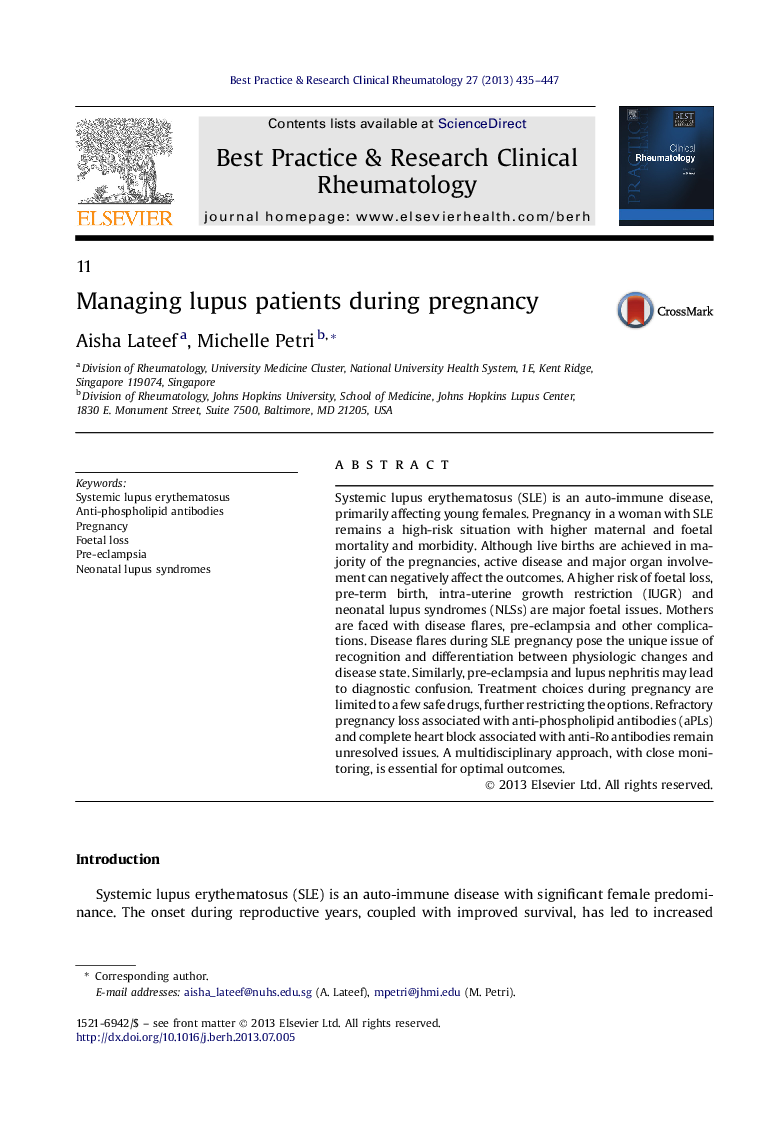| Article ID | Journal | Published Year | Pages | File Type |
|---|---|---|---|---|
| 3343113 | Best Practice & Research Clinical Rheumatology | 2013 | 13 Pages |
Systemic lupus erythematosus (SLE) is an auto-immune disease, primarily affecting young females. Pregnancy in a woman with SLE remains a high-risk situation with higher maternal and foetal mortality and morbidity. Although live births are achieved in majority of the pregnancies, active disease and major organ involvement can negatively affect the outcomes. A higher risk of foetal loss, pre-term birth, intra-uterine growth restriction (IUGR) and neonatal lupus syndromes (NLSs) are major foetal issues. Mothers are faced with disease flares, pre-eclampsia and other complications. Disease flares during SLE pregnancy pose the unique issue of recognition and differentiation between physiologic changes and disease state. Similarly, pre-eclampsia and lupus nephritis may lead to diagnostic confusion. Treatment choices during pregnancy are limited to a few safe drugs, further restricting the options. Refractory pregnancy loss associated with anti-phospholipid antibodies (aPLs) and complete heart block associated with anti-Ro antibodies remain unresolved issues. A multidisciplinary approach, with close monitoring, is essential for optimal outcomes.
